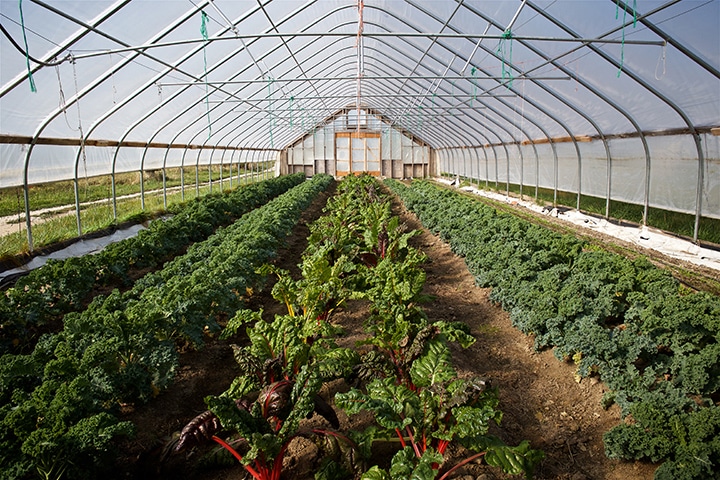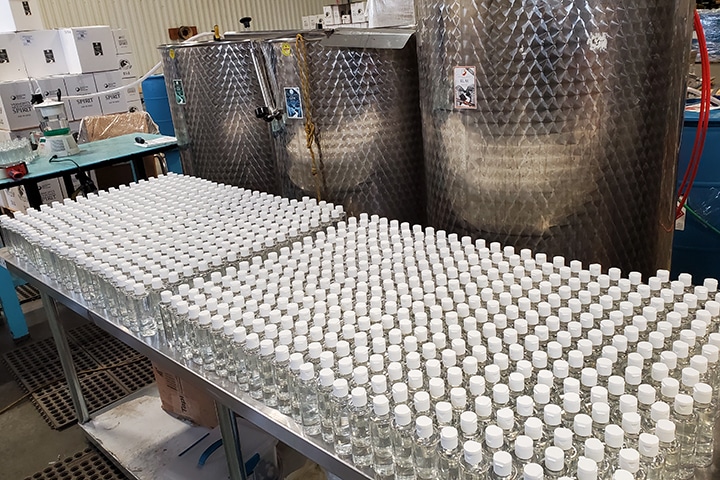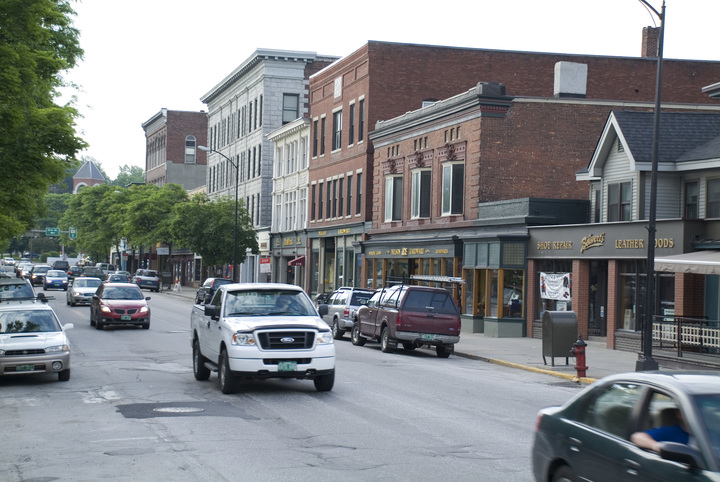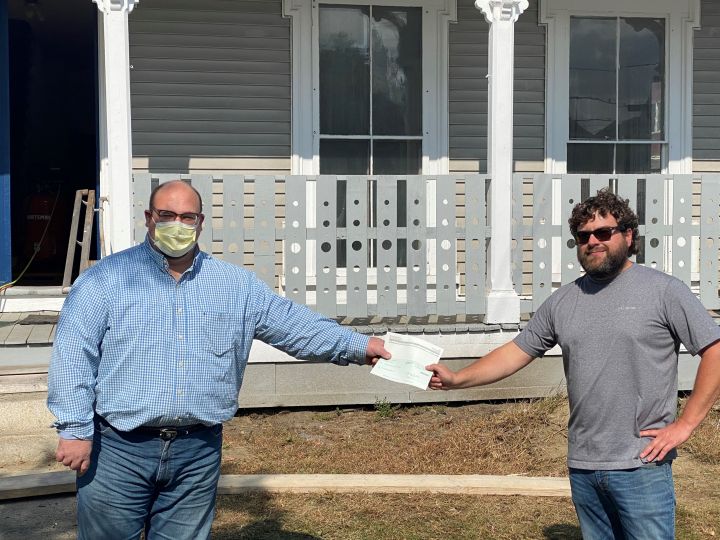
by accdWebMaster | Jan 4, 2021 | Manufacturing
Stowe software company Inntopia usually designs and builds websites for lodging properties to manage reservations, activities, staff, and marketing. But during the COVID-19 outbreak, they released TestLink, a free software platform that connects patients to testing sites.
Inntopia also partnered with the owner of two Massachusetts ski areas to set up Goggles for Docs, a site connecting health care workers nationwide with ski and snowboard goggles to serve as eye protection as they care for COVID-19 patients.
Two Windham County tech manufacturers have found themselves in the thick of the fight against COVID-19. Brattleboro-based Omega Filters makes components for PCR machines, a primary diagnostic tool for the novel coronavirus. So does Chroma, based in Bellows Falls. Both are working to change their manufacturing and keep up with demand to allow for more COVID-19 testing.
Vermont snowboard manufacturer Burton is donating half a million N95 respirator masks to health care professionals, sourced from a Chinese factory located near where the majority of Burton’s bindings are made. The masks are headed for hospitals and health care facilities across the East Coast, said owner Donna Carpenter.
Other Vermont businesses are giving back to ensure Vermonters can access food and other necessities. Kaden Apparel, based in Burlington, is donating 15% of website purchases and matching it dollar-for-dollar to give to the Vermont Foodbank’s COVID-19 Hunger Relief Fund through April 25.
Winooski-based Vivid Coffee is donating $2 from every bag of coffee sold online to the baristas at partner locations who are out of work. They have started a relief fund for baristas statewide.
Vermont creperie Skinny Pancake is serving people in need of a meal through their Shift Meals program. They currently serving anyone affected by the COVID-19 crisis and struggling to afford food in the Burlington, Montpelier, Waterbury or Quechee areas.
Businesses wishing to assist the State of Vermont with donations of PPE can learn how by visiting https://vem.vermont.gov/donate. If you are a manufacturer with an ability to retool operations or production to support the COVID-19 effort, email VTPTAC.

by accdWebMaster | Jan 4, 2021 | Agriculture, Food & Beverage, Nonprofits
The Vermont Agency of Agriculture, Farms & Markets offers a farm/food business impact form for businesses to share the impact they’ve experienced. Collected impact will help the Agency determine how best to aid the sector.
UVM Extension is offering multiple webinars for farmers and food businesses to move their business online and expand their customer base by accepting SNAP. Past episodes are also available for viewing.
Vermont Farm to Plate (F2P) has created a COVID-19 Resource Collection. It includes guidance for employers and a form to submit questions to F2P’s COVID-19 Task Force.
Businesses interested in supplying Hannaford grocery stores as local farm/food producers can fill out their Hannaford Vendor Supplier Information Gathering survey.
F2P also offers a database for farmers to find replacement milkers in the event their milkers become ill and cannot work.
The Northeast Organic Farming Association of Vermont (NOFA-VT) offers a comprehensive page of farmer resources, including a matchmaker tool for farmers with excess produce to sell.
Vermont Law School’s Center for Agriculture and Food Systems created an employment law FAQ for farmers and farmworkers.
The UVM Extension Veg and Berry Team offers guidance for handling berry crops during the pandemic.
The Vermont Farm & Forest Viability Program (a program of the Vermont Housing & Conservation Board) offers a resource page for working lands businesses.
Farmers that are involved in agritourism can find support and guidance on the Vermont Agritourism Facebook page.
For more COVID-19 related resources for businesses and individuals, visit the COVID-19 Recovery Resource Center.

by accdWebMaster | Jan 4, 2021 | Consumer Goods, Food & Beverage, Manufacturing, Vermonting
Jeremy Elliott, owner of Smugglers’ Notch Distillery, is also the president of the Distilled Spirits Council of Vermont. He says the Council has been holding emergency planning calls with member distillers since the early days of the state’s pandemic response. “We’re all working together. We’ve opened up supply lines to make sure we can get hand sanitizer to first responders and the people who have to be on the front lines.”
Mad River Distillers, based in Waitsfield, is giving away its sanitizer for free to local businesses and dispensing it to people who bring their own containers. They’re following the World Health Organization’s recipe for effective sanitizer – 60% alcohol, in a glycerin base.
It’s keeping staff on payroll and supplying sanitizer to essential workers and the general public.
When owner Ryan Christiansen started hearing reports of COVID-19’s spread, Caledonia Spirits made a small batch of hand sanitizer as a team workshop, but soon was making larger batches to sell to state agencies and give to healthcare workers on the frontlines.
Now, they’re working with Stonecutter Spirits to form a collective to cover costs and meet a statewide need for sanitizer as the pandemic continues.
Windsor’s Silo Distillery has taken up the sanitizer mission too, offering free sanitizer to community members in need. So is Shelburne-based Wild Hart Distillery, looking for a chance to pitch in.
Morristown’s Green Mountain Distillers was among the first to begin hand sanitizer production, allowing restaurants and community members to take what they need for free outside the distillery’s doors.
Now, they’re serving the local domestic violence shelter, essential workers and the VFW, too.
Be sure to check out this video of Vermont’s craft spirits scene, for a look at how these businesses thrive, when they aren’t helping the state respond to COVID-19.

by accdWebMaster | Dec 1, 2020 | Communities, Quality of Life
Each of the four communities will receive the grants over three years to support programs designed to bolster economic equality and workforce development across these regions of the state.
“Congratulations to each of these communities for putting together proposals designed to address significant needs in their unique regions,” Rosengren said. “This is just the start of a lot of hard work on behalf of the residents in these communities. I look forward to working with these teams and following their progress over the coming years.”
- Springfield seeks to increase workforce participation to combat generational poverty and help residents support themselves and their families.
- Greater Barre looks to lower the rate of single female head of households in poverty by 15% in 10 years.
- Lamoille County plans to tackle systemic barriers to employment and improve workforce transitions in order to lower the county’s unemployment rate by 2024 and create a more diversified economy.
- Winooski aims to establish systems to lift underrepresented voices and involve the area’s diverse population in decision-making and community dialogue.
“I want to congratulate the four winners we’re announcing today and thank the Boston Fed for working with us on this initiative,” said Governor Scott. “This pandemic has shown us why it is important to strengthen our small communities and ensure we have more diversity in our economy so we’re not so reliant on any one sector or any one region. Grants like this will help achieve these goals so we can come out of this pandemic stronger and more resilient.”
President Rosengren and Governor Scott celebrated the four communities being named grant recipients at a virtual event today and leaders from each of the four communities shared their efforts to strengthen their local economies and build healthy communities.
To learn more about the communities and the initiatives these grants will support please check out the Working Communities Challenge Website.
About the Working Communities Challenge
The Working Communities Challenge advances local collaborative efforts that build strong, healthy economies and communities in Vermont’s rural towns, regions, and smaller cities. Launched in 2019, the initiative supports diverse, local teams as they tackle complex challenges facing their communities. This unique three-year grant competition focuses on economic opportunity for communities and residents with low incomes. Its supported by the Federal Reserve Bank of Boston, the State of Vermont, national and local philanthropy, and private sector employers.
The Working Cities Challenge is funded by of the state of Vermont and a collaboration that includes the Doris Duke Charitable Foundation, The Robert Wood Johnson Foundation, NeighborWorks America, The Avangrid Foundation, The Northern Border Regional Commission, The William J. and Dorothy K. O’Neill Foundation, The National Life Foundation, The Vermont Community Foundation, The TD Charitable Foundation, Green Mountain Power, Efficiency Vermont, Pomerleau Real Estate, People’s United Bank, Vermont Energy Investment Corporation, Vermont Electric Power Company, Inc., Northfield Savings Bank, Vermont State Employees Credit Union (VSECU), Housing Vermont, and Windham Foundation. The Federal Reserve Bank of Boston does not provide funding for the initiative.
For more on the Working Communities Challenge, visit https://www.bostonfed.org/workingplaces/communities-challenge.aspx.

by accdWebMaster | Oct 7, 2020 | Communities, Incentives/Financing/Programs
The need for a program like this comes from the fact that it is often too costly for private landlords to rehabilitate older apartments. For his building on Center Street in Lyndonville, Hebert would need to invest around $100,000 to provide just three units of quality housing to tenants. Through this program, he can now do this work for just over ten percent of that cost. “By partnering with RuralEdge to utilize the grant money available through the Re-Housing Recovery Program, we are able to provide apartments that meet the Vermont Rental Housing Code and work with local agencies to assist those at risk of homelessness,” Hebert said. Joy Ely of Northeast Kingdom Community Action is grateful for this program as an opportunity to assist those in the community at risk of experiencing homelessness, citing “The COVID -19 pandemic has shed a light on the number of our neighbors across the Northeast Kingdom who are struggling with housing insecurity. Being a part of a strong community, identifying barriers and collaborating with partners like Rural Edge, and now new landlords, strengthens our efforts in supporting everyone in the NEK to grow, prosper and thrive.”
This program provides a great opportunity for partnership between private landlords, local agencies and RuralEdge’s Homeownership Center, which provides home purchase counseling, a home repair program which offers grants and low-interest loans for necessary home repairs to low-income households, and also serves as the team responsible for the application and disbursement of the Re-Housing Recovery Program funds. When asked about these partnerships, RuralEdge Executive Director Patrick Shattuck said “RuralEdge works to strengthen Northeast Kingdom communities, one home at a time. We are most effective when we have dedicated partners working with us to achieve this mission. I am excited that the Re-Housing Relief fund provides us with an opportunity to enlist new partners in private landlords like Tyler Hebert while enhancing our longtime community partnership with NEKCA as we seek to end homelessness and ensure quality, permanent affordable housing for all.”
For more information on this program or to fill out an application, visit ruraledge.org or call (802) 473-3916.
###
The mission of RuralEdge is to strengthen Northeast Kingdom communities, one home at a time
Robert Little
Director of Community Development
(802) 233-7257
robertl@ruraledge.org





 Federal Reserve Bank of Boston President Eric Rosengren and Governor Phil Scott announced that the Springfield area, Greater Barre, Lamoille County, and Winooski are the recipients of $300,000 grants as part of the Boston Fed’s
Federal Reserve Bank of Boston President Eric Rosengren and Governor Phil Scott announced that the Springfield area, Greater Barre, Lamoille County, and Winooski are the recipients of $300,000 grants as part of the Boston Fed’s 